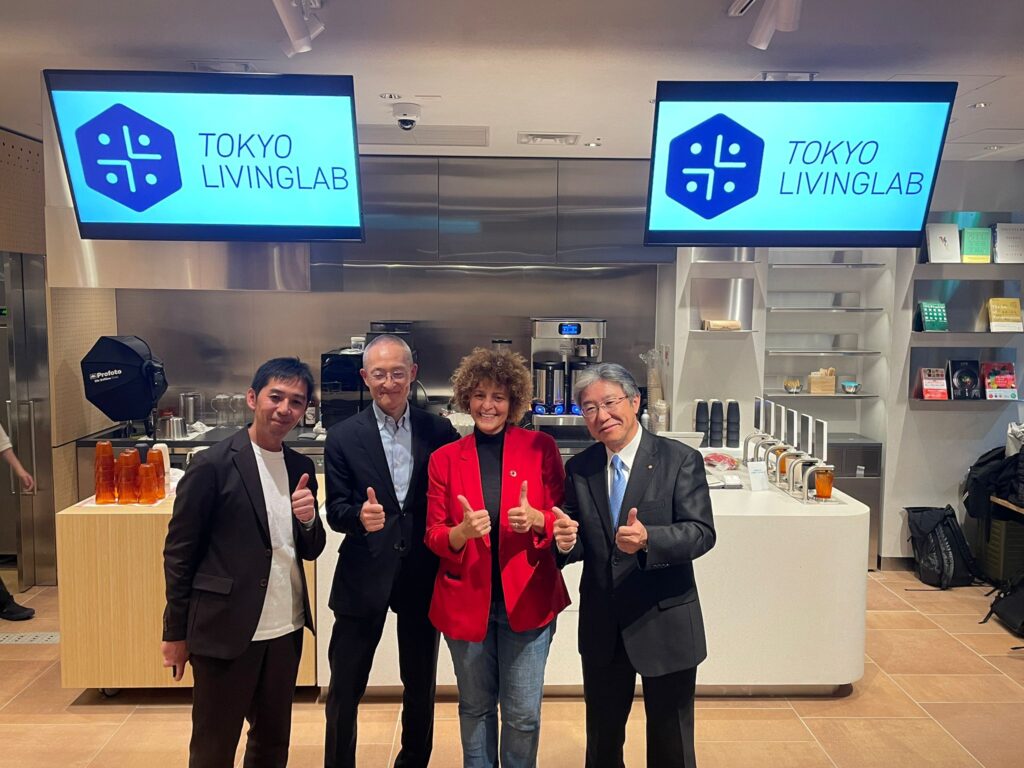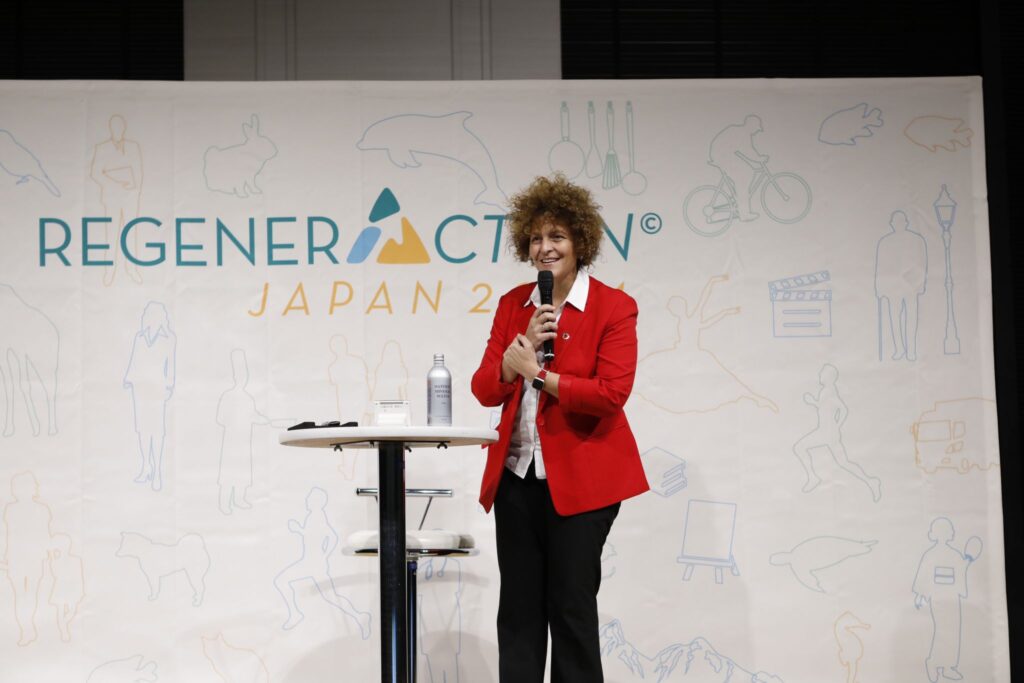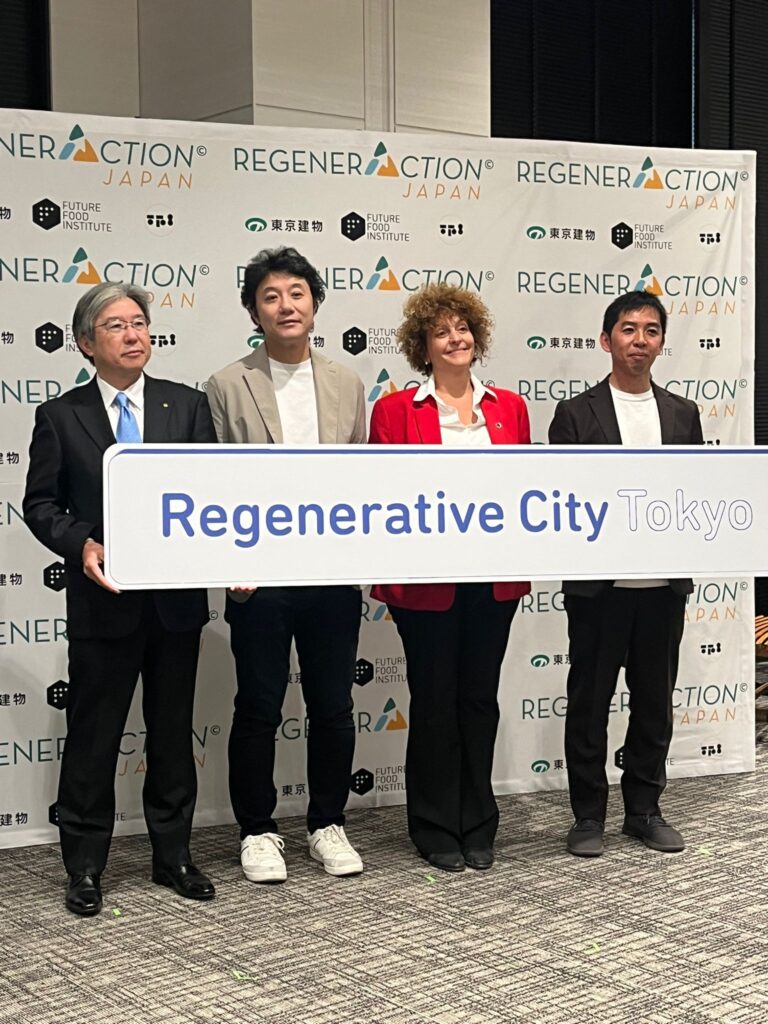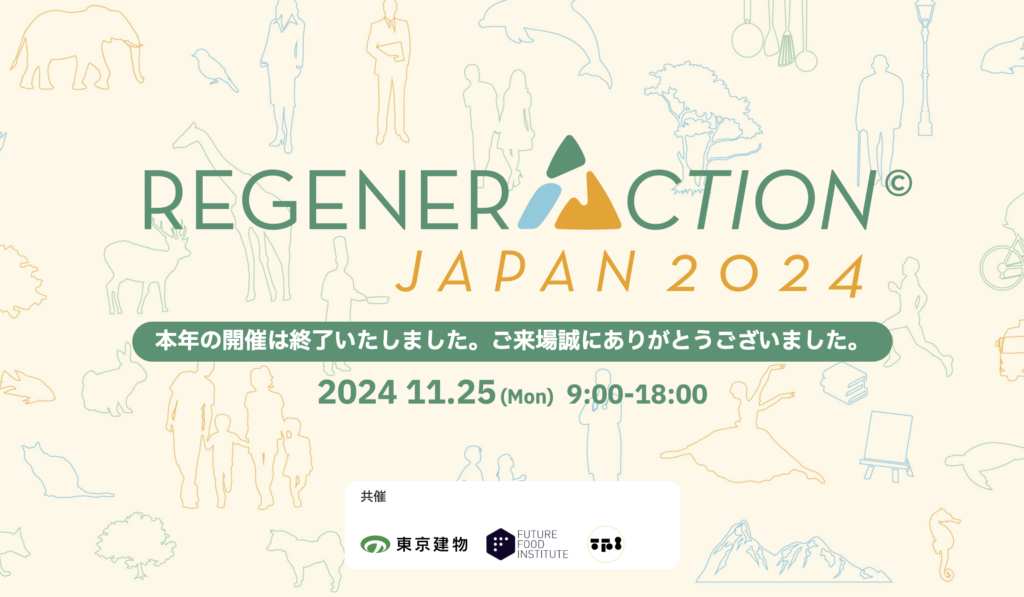Tokyo, November 25, 2024
After four years of work in Japan, Future Food Institute is inaugurating a new space for its Living Lab in Tokyo during the second edition of RegenerAction Japan. This initiative builds on the efforts undertaken at the Paideia Campus in Pollica, Italy, adapting its regeneration model to address the challenges of major cities.
The new Living Lab will serve as the heart of an ambitious project: creating a prototype of a regenerative neighborhood in one of the world’s largest megacities. This approach aims to demonstrate that environmental prosperity and urban development can coexist, fostering an integrated and sustainable model inspired by integral ecology.
A Model That Merges Tradition and Innovation
The experience in Pollica, where Future Food Institute transformed a rural village into a living laboratory, will serve as the foundation for tackling the challenges of a metropolis. “We believe Living Labs are catalysts for change,” said Sara Roversi, Founder and President of Future Food Institute. “By adapting our approach to the urban context, we aim to show that regeneration is not only possible but also essential in large cities. Food is the true connection point between humanity’s fundamental needs and the planet: the future of cities depends on our ability to create regenerative models and innovative prototypes that unite sustainability and social well-being.”
A Living Lab to Inspire and Transform
Future Food Institute is proud to collaborate with Tokyo Tatemono to bring this vision to life. “Thanks to our expertise in creating and managing Living Labs, we are confident in our ability to effectively address Tokyo’s needs.”
The Tokyo Living Lab will be a space for experimentation, open to everyone: universities, urban farmers, chefs, and policymakers alike. It will be a hub for developing solutions to tackle the climate crisis and promote sustainable lifestyles.
A Global Event: RegenerAction Japan 2024
This format, conceived and promoted by Future Food Institute, began in 2022 as an initiative focused on ecological regeneration and human prosperity. Following the success of its initial European editions, RegenerAction was brought to Japan last year, where it garnered significant interest, becoming a platform for global dialogue on urban sustainability. The event has brought together leaders, companies, startups, and local communities to discuss innovative strategies for urban regeneration and officially launch the “Regenerative City Tokyo” project.
A Vision for the Future
Future Food Institute continues to work tirelessly to turn global challenges into opportunities through multistakeholder dialogue and the promotion of new regenerative paradigms. “This project and event are an invitation to courage and collaboration, to build the future of our cities together,” concludes Sara Roversi, Founder and President of Future Food Institute.




